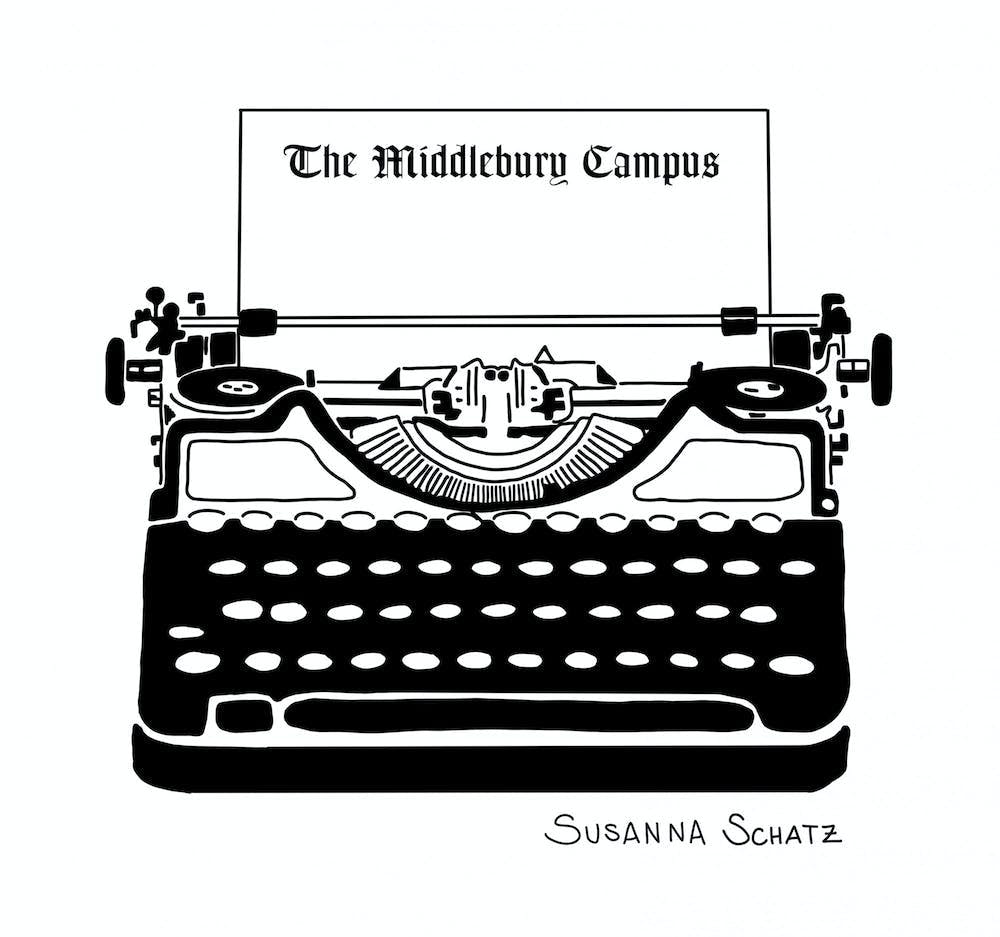In January 2025, after almost 10 years at the college, President Laurie Patton will step down from her post to become President of the American Academy of Arts and Sciences. Dean of Language Schools Stephen Snyder will serve as interim president this coming spring, with the Board of Trustees and presidential search committee hoping to have named the 18th president by February 2025. Board of Trustees Chair Ted Truscott has previously shared that the Board is hoping for a president who represents a continuity of President Patton’s tenure rather than a change in policy.
As the presidential search committee looks to find the institution’s next president, we believe that it should prioritize candidates who form genuine connections with students, understand the unique importance of the local area and Vermont, and have bold solutions to the challenges facing Middlebury and higher education — challenges that have not been fully addressed under Patton’s tenure.
Patton is routinely spotted walking around campus with her two dogs, and frequently stops to chat with students she knows and those she has never met before. Though her ability to directly engage with the student body is limited by the demands of her administrative role, she has reserved time to hold open office hours and teach half-credit courses in the Religion department. The next president doesn’t need to be a fan of Great Pyrenees or spirituality, but they should prioritize leaving the boundaries of Old Chapel and entering the rhythms of everyday life at Middlebury, whether that be in the halls of the Mahaney Arts Center, the stacks of Davis Library or along the bleachers lining the athletic fields.
Patton has focused significant efforts towards fundraising with the launch of the “For Every Future” campaign in October 2023. She has overseen the raising of $465 million as of this September, exceeding the previously established goals this summer by over $50 million. These funds will expand opportunities for Middlebury students in a variety of ways; we expect that the new president of Middlebury will need to be both skilled in raising money and in allocating the funds of this lucrative campaign to the areas that will most closely benefit us as students. The $40 million unrestricted donation from last spring has not been publicly allocated yet. Why not ask each candidate how they would spend that money as a test of their priorities and decision-making abilities?
Speaking of making difficult decisions, Patton saw several challenges under her tenure, including the Charles Murray incident in 2017, dissolution of the Commons system, the Covid-19 pandemic restrictions, chronic understaffing and a decline in the student body’s diversity. Whether or not these challenges are direct results of her administration is unknown; the Board of Trustees has more power than some students may realize in creating and implementing such policies. Yet if at times the institution felt rudderless this past decade, drifting along into slow decline as wages stagnated, services stalled and tuition rose, that will be her legacy too.
We hope a new president will bring vitality and creativity to the greatest challenges facing our college, yet we acknowledge not all of their decisions will be easy or popular. Give us a president who can take accountability for these tough calls and justify them to the student body — we want to know what our student activity fees pay for, why juniors are still living in Hepburn doubles and how the college plans to protect our mental health. We do not care as much about the so-called “Big M” or the international reputation Middlebury seeks for itself. The next president should be a fierce advocate for the Vermont campus and the overwhelming majority of students at the college who study here and pay tuition here.
We’d also like to see the new president focus on strengthening the relationship between the college and the town of Middlebury and Vermont on the whole. Under Patton, the college has funded two major new housing developments in the town of Middlebury, a crucial act given the shortage of affordable housing in Vermont and the resultant understaffing at the college. We believe the new president must bring a similar vision that cares about our relationship with Addison County, whether that is investing in local childcare and housing or weighing how to best use thousands of acres of college-owned land here.
Last Friday, Board of Trustees Chair Ted Truscott sent the Middlebury community an email announcing the decision to appoint Synder as interim president. This message was initially relayed that morning to faculty at Bread Loaf and then to staff on the main campus before the mass email reached the rest of the community, which included all students. It is unfortunate that such a decision made students feel like an afterthought in the process, rather than an important constituency. We appreciate the surveys seeking student feedback on our ideal qualities of a new president, but as the ones paying tuition and ultimately receiving our diplomas here, we hope that both our voices and ears will be prioritized throughout the search and by our new president.
We understand that to be the president of a college or university right now is no easy task, and requires inserting yourself into the front lines of the ongoing struggle for higher education. We commend those seeking to lead and represent universities when many institutions are facing amplified pressure and scrutiny from critics and donors in recent years.
Patton’s successor must be up to the challenge of not only articulating the importance of a Middlebury education in the 21st century, but doing so with resolve when it is most important, and most necessary.


